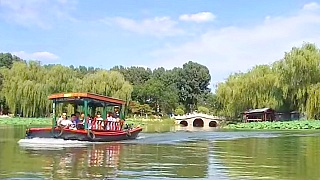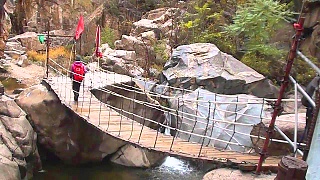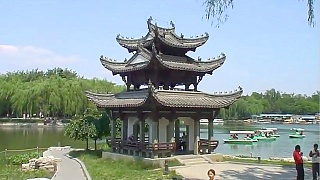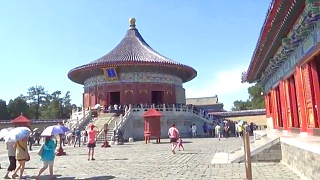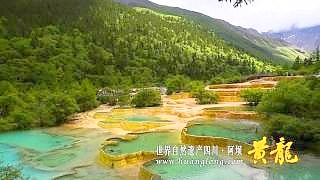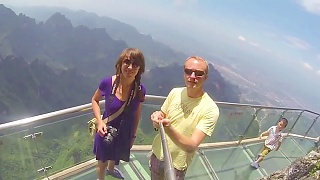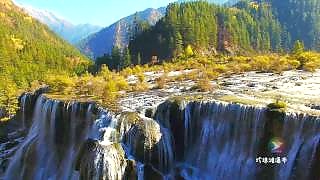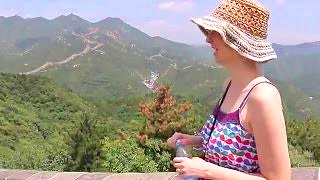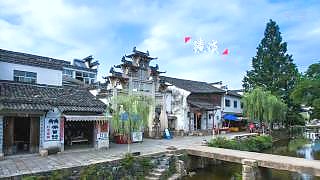With MisterVaughn ...
[640],shadow=true,start=,stop=Welcome to Yuan Dadu City Wall Park
Discover the ancient walls of Beijing
About Yuan Dadu City Wall Park
Yuan Dadu City Wall Park is a historical park located in the northern part of Beijing, encompassing the remnants of the city walls from the Yuan Dynasty (1271-1368). The park preserves a section of the ancient city walls and provides visitors with a glimpse into the rich history of Beijing. The park stretches for several kilometers and is a popular spot for both locals and tourists to relax, exercise, and learn about the city's past.
Main Attractions
Ancient City Walls
The park features well-preserved sections of the ancient Yuan Dynasty city walls. These walls, originally built to protect the capital, now stand as a testament to the architectural prowess and historical significance of the Yuan Dynasty.
City Wall Relics Museum
Located within the park, the City Wall Relics Museum offers an in-depth look at the history of the Yuan Dadu city walls. The museum displays artifacts, historical documents, and detailed models of the ancient city.
Scenic Walkways
The park features beautifully landscaped walkways that run alongside the ancient walls. These walkways are perfect for leisurely strolls and provide visitors with picturesque views of the park's greenery and historical structures.
Peony Garden
The Peony Garden, located in the park, is a must-visit during the blooming season in spring. The garden showcases a stunning variety of peonies and is a popular spot for photography and relaxation.
Activities
Morning Exercises
Yuan Dadu City Wall Park is a popular spot for locals to perform morning exercises such as tai chi, dancing, and jogging. Visitors can join in or simply enjoy watching these traditional Chinese activities.
Photography
The park offers excellent opportunities for photography, especially around the ancient city walls and gardens. Capture the historical essence and natural beauty of the park in your photos.
Seasonal Festivals
Yuan Dadu City Wall Park hosts various cultural events and festivals throughout the year, such as the Peony Festival in spring and traditional Chinese cultural performances. These events provide a deeper understanding of the local culture and history.
Transport
Yuan Dadu City Wall Park is easily accessible from various parts of Beijing. Here are some ways to get there:
- By Subway: Take Line 10 to Jiandemen Station, then walk north for about 10 minutes to reach the park.
- By Bus: Multiple bus routes stop near Yuan Dadu City Wall Park, including routes 27, 55, and 305. Get off at the Dadu Ruins Park stop.
- By Taxi: Taxis are a convenient option, especially if you are traveling with a group or have heavy luggage. Just ask the driver to take you to Yuan Dadu City Wall Park (元大都城垣遗址公园).
Beijing, the capital city of China, is a vibrant metropolis steeped in history, culture, and modernity. Here's a brief overview of what you can expect as a tourist in Beijing:
Historical Landmarks:
The Great Wall of China: One of the most iconic structures in the world, the Great Wall is easily accessible from Beijing. Mutianyu and Badaling sections are popular among tourists.
Forbidden City (Palace Museum): A UNESCO World Heritage Site, this vast imperial palace complex was home to Chinese emperors for over 500 years. It houses numerous halls, courtyards, and historical artifacts.
Temple of Heaven: A masterpiece of Chinese architecture, this ancient temple complex served as a place of worship for emperors to pray for good harvests.
Summer Palace: A stunning ensemble of lakes, gardens, and palaces, the Summer Palace served as a retreat for emperors during the Qing dynasty.
Tiananmen Square: One of the largest city squares in the world, Tiananmen Square is flanked by important landmarks such as the Monument to the People's Heroes, the Great Hall of the People, and the Mausoleum of Mao Zedong.
Cultural Sites:
Beijing Hutongs: Explore the narrow alleyways and traditional courtyard residences of Beijing's historic neighborhoods. You can take a rickshaw tour or simply wander around on foot.
Beijing Opera: Experience traditional Chinese opera performances at venues like the Liyuan Theater or the Chang'an Grand Theatre.
798 Art District: A hub of contemporary art and culture, this former industrial area is now home to numerous galleries, studios, and cafes.
Modern Attractions:
Olympic Park: Visit iconic structures such as the Bird's Nest (National Stadium) and the Water Cube (National Aquatics Center) from the 2008 Beijing Olympics.
CBD (Central Business District): Marvel at the futuristic skyline of Beijing's modern business district, which includes landmarks like the CCTV Headquarters and the China World Trade Center Tower III.
Culinary Delights:
Peking Duck: Indulge in Beijing's most famous dish, crispy roast duck served with pancakes, scallions, and hoisin sauce.
Street Food: Explore the city's vibrant street food scene and sample local delicacies like jianbing (savory crepes), lamb skewers, and dumplings.
Practical Tips:
Transportation: Beijing has an extensive public transportation system, including the subway, buses, and taxis. However, traffic can be heavy, so plan your travels accordingly.
Language: While English is not widely spoken, especially outside tourist areas, many signs and transportation announcements are in English. It's helpful to carry a translation app or a phrasebook.
Weather: Beijing experiences four distinct seasons, with hot summers and cold winters. The best times to visit are spring (April to June) and autumn (September to October) when the weather is mild and comfortable.
Etiquette: Respect local customs and traditions, such as removing your shoes before entering someone's home and using both hands to pass or receive items.
Beijing offers a rich tapestry of experiences for tourists, blending ancient heritage with modern innovations. Whether you're fascinated by history, culture, or culinary delights, there's something for everyone in this dynamic city.
 Yuan DaDu City Wall Park, BeiJing
Yuan DaDu City Wall Park, BeiJing
